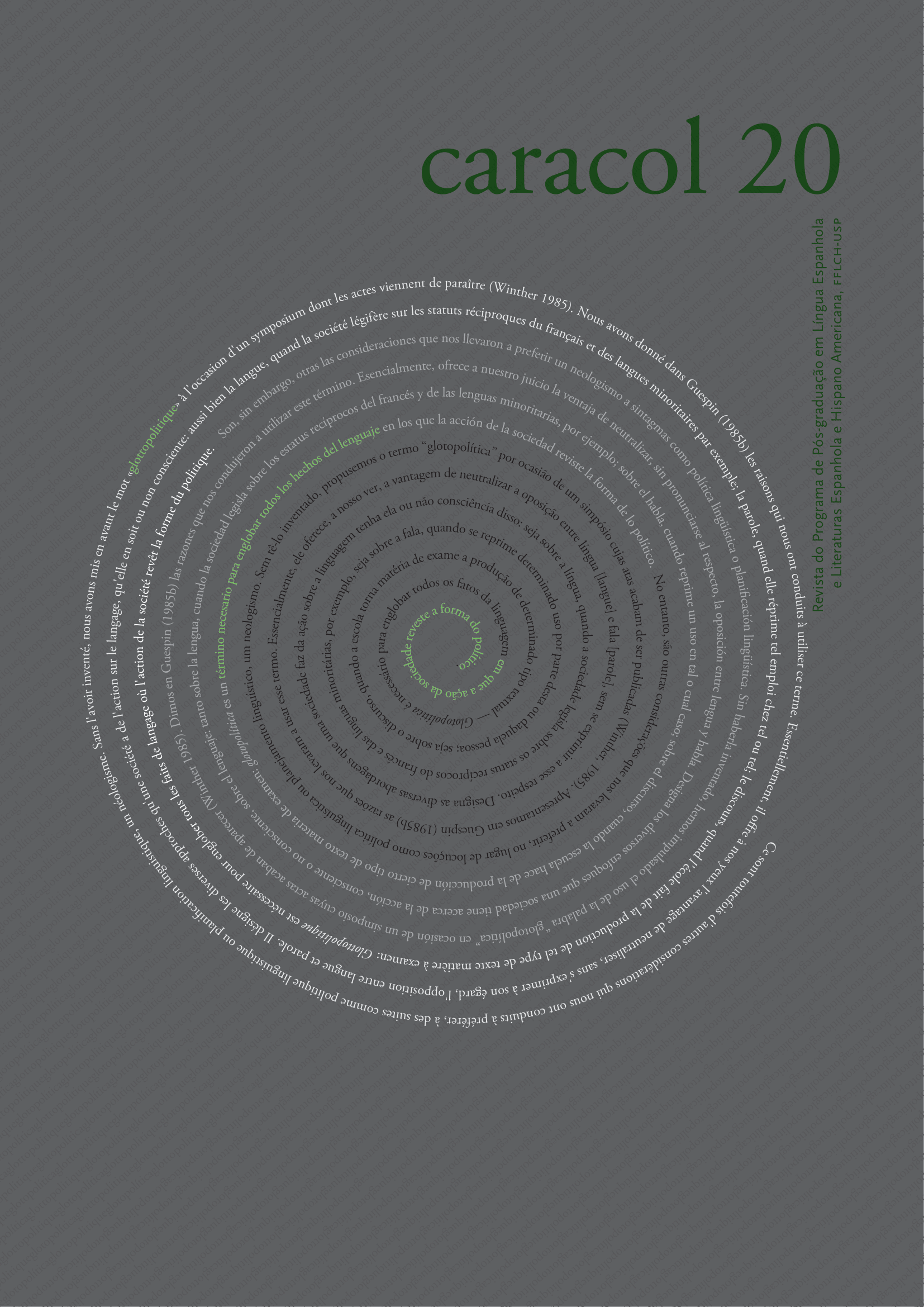Voces femeninas en la guerra de independencia de Cuba: Lila de Luáces y Eva Adán de Rodríguez
DOI:
https://doi.org/10.11606/issn.2317-9651.i20p486-511Keywords:
Women, War, Independence, Cuba, United StatesAbstract
During the war of independence in Cuba, which started in 1868 and lasted ten years, a number of texts appeared in Cuba and the United States detailing the conflict. All of these texts were written by men with the exception of one, published in the US, that was written by a woman. In this article I discuss this testimony and I compare it with another one published in Cuba after the war, also written by another female survivor. I discuss the way violence and the self is represented in these narrations, and most importantly how they build an archive of deeds to criticize Spain’s official (hi)story of the Cuban conflict.
Downloads
References
Assmann, Aleida. Cultural memory and western civilization. Cambridge: Cambridge University Press, 2011.
Barnet, Miguel. Biografía de un cimarrón. La Habana: Academia de Ciencias de Cuba, 1966.
Beverley, John. Testimonio: on the politics of truth. Minnesota: University of Minnesota Press, 2004.
Camacho, Jorge. Amos, siervos y revolucionarios: la literatura de las guerras de Cuba (1868-1898). Una perspectiva transatlántica. Madrid: Iberoamericana/Vervuert, 2018.
De Luáces, Lila Waring. “Atrocities in Cuba. Narrative of a former resident within the insurgent lines. Inhuman treatment of Cubans by the Spanish authorities”. In: The New York Tribune. 16 de December, 1871, 4.
El Moro Muza, “Céspedes inmoral y bígamo”. 16/6/1870, 301.
El Moro Muza, “Los que hoy libertad proclaman”. 21/11/1869, 64
Foucault, Michel. Language, Counter-Memory, Practice: Selected Essays and Interviews. Ed. Donald F. Bouchard. Ithaca: Cornell UP, 1977.
Loret de Mola, Melchor. Episodio de la Guerra de Cuba: El 6 de enero de 1871. Puerto Príncipe: Imprenta la Luz San Digo, 1893.
Martí, José. “Atrocidades en Cuba”. In: Obras Completas. Edición crítica. Vol. 21. La Habana: Centro de Estudios Martianos, 2008, 436- 449.
Misch, Georg. History of Autobiography in Antiquity. New York: Routledge, 2014.
Perpiñá, Antonio. El Camagüey, viajes pintorescos por el interior de Cuba y por sus costas. Barcelona: liberaría de J. A. Bastinos, 1889.
Rodríguez, Eva Adán. Hojas de Recuerdos. Prólogo Gonzalo Aróstegui y del Castillo. Epílogo de Miguel de Marcos. La Habana: Imprenta Molina y Cía, 1935.
Sierra Madero, Abel. Del otro lado del espejo: La sexualidad en la construcción de la nación cubana. La Habana: Casa de las Américas, 2006.
Smith, James Bruce. Politics & Remembrance. Republican Themes in Machiavelli, Burke, and Tocqueville. Princeton: Princeton University Press, 1985.
Downloads
Published
Issue
Section
License
Copyright (c) 2020 Jorge Camacho

This work is licensed under a Creative Commons Attribution-NonCommercial 4.0 International License.
Authors who publish in this journal agree to the following terms:
- Authors retain copyright and grant the journal the right of first publication, with the work simultaneously licensed under a Creative Commons Attribution License, which permits the dissemination of the work with recognition of authorship and initial publication in this journal.
- Authors are allowed to enter into additional contracts separately for non-exclusive use of the version of the work published in this journal (such as publication in an institutional repository or as a book chapter), with recognition of authorship and initial publication in this journal.
- Authors are allowed and encouraged to publish and distribute their work online (e.g., in institutional repositories or on their personal page) at any point before or during the editorial process, as this can generate productive changes, as well as increasing the impact and citation of the published work (see The effect of open access…).



